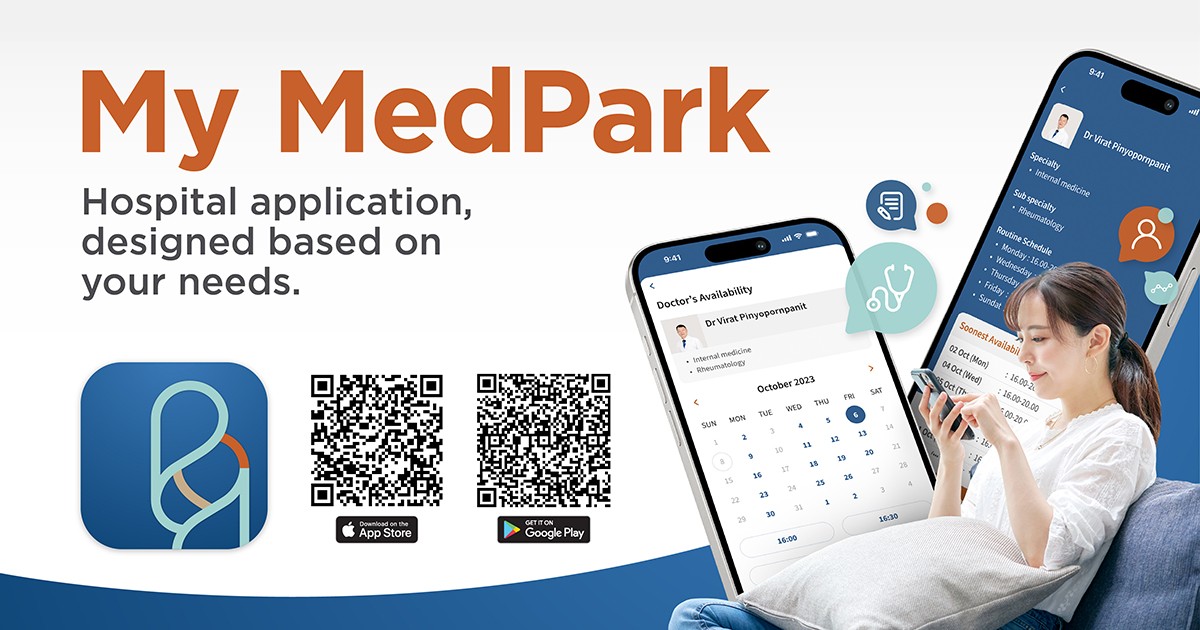Are you considering medical tourism? Why Thailand Medical Tourism might be the ideal choice for you, offering a blend of affordable, high-quality healthcare and a rejuvenating travel experience. SIXT.VN understands the importance of accessible and trustworthy travel information, and Thailand stands out as a premier destination for medical tourists. Explore a world of exceptional medical treatments combined with the allure of Thai culture.
1. What Makes Thailand a Top Choice for Medical Tourism?
Thailand has emerged as a global leader in medical tourism due to its unique combination of affordability, quality, and cultural appeal. According to a 2023 report by the Thailand Medical Tourism Association, the industry is projected to reach $6 billion, attracting around 3 million medical tourists. Thailand holds nearly 90% of Asia’s medical tourism market, with a growth rate of 16%. This highlights Thailand’s position as a top-tier medical hub. Patients come to Thailand for a wide range of procedures, from intricate heart surgeries to cosmetic enhancements, all while enjoying the beauty and hospitality the country offers.
- Affordable Excellence: Thailand provides high-quality medical procedures at a significantly lower cost than many Western countries.
- Modern Facilities: Hospitals are equipped with advanced medical technology and often hold JCI accreditation, ensuring top hygienic standards.
- Expert Doctors: Thailand boasts skilled, English-speaking specialists in diverse fields like cardiology, orthopedics, and cosmetic surgery.
- Cultural Immersion: Thailand’s beautiful scenery, tranquil beaches, and rich cultural heritage create a relaxing recovery environment.
- Thai Hospitality: The warmth and friendliness of the Thai people make visitors feel welcome and cared for.
- Integrated Wellness: Medical packages often include holistic therapies such as traditional Thai massage and meditation.
- Insurance Acceptance: Many Thai hospitals accept international health insurance, simplifying treatment costs.
 Thailand Medical Tourism Treatments and Procedures 2
Thailand Medical Tourism Treatments and Procedures 2
2. What Treatments and Procedures Are Popular in Thailand?
Thailand offers a wide array of medical treatments and procedures, catering to diverse health needs.
2.1. Heart Surgery
Thailand is known for a range of heart surgeries, including coronary artery bypass grafting (CABG) and heart valve replacements. In 2023, cardiac surgery costs in Thailand ranged from $15,000 to $35,000, significantly less than in Western countries where the same procedures could cost $70,000 to $200,000. The blend of cost-effectiveness and advanced technology positions Thailand as a premier destination for heart surgery.
2.2. Orthopedic Surgery and Joint Replacement
Thailand provides exceptional orthopedic surgeries, including minimally invasive spinal surgeries, hip and knee replacements, and scoliosis surgery. According to a 2023 estimate, hip and knee replacements in Thailand cost between $7,000 and $15,000, a 50–70% reduction compared to Western countries. The use of advanced medical technologies and board-certified surgeons makes Thailand a worthwhile destination for orthopedic care.
2.3. Dental Treatment
Thailand offers comprehensive dental services, from dental implants to cosmetic dentistry. In 2023, dental implants with crowns averaged $2,480, and veneers cost approximately $470. All-On-4 dental implants range from $7,800 to $12,000. These affordable prices, combined with high-quality care, make Thailand a top choice for dental tourism.
2.4. Reproductive Medicine: IVF, ICSI
Thailand is an ideal location for reproductive treatments such as IVF and ICSI, offering cost-effective, world-class facilities. The estimated cost of IVF in Thailand ranges from $8,000 to $13,700 in 2023, while ICSI costs about $10,000. With expert reproductive endocrinologists, Thailand has earned a reputation as a leading medical tourism hub for reproductive medicine.
2.5. Cosmetic Surgery
Thailand is a popular destination for cosmetic surgery due to its affordable prices and skilled surgeons. In 2023, a facelift costs between $4,000 and $7,000, orthognathic surgery costs between $10,000 and $20,000, and Botox costs between $10 and $15 per unit. The opportunity to recover in a beautiful environment enhances the appeal of cosmetic surgery in Thailand.
2.6. Eye Surgery
Thailand is internationally recognized for eye surgery. The country offers a wide range of procedures, including LASIK and cataract surgery, with experienced ophthalmologists and cutting-edge technology. In 2023, LASIK surgery costs between $1,500 and $2,050 for both eyes, while cataract surgery with monofocal lens implants costs around $2,400 per eye. Excellent customer service and short recovery times make Thailand an ideal country for vision correction.
2.7. Cancer Treatment
Thailand provides comprehensive cancer treatment using a variety of clinical approaches. In 2023, the estimated cost of cancer treatments ranges from $2,000 to $130,900, depending on the type and stage of cancer. Breast cancer radiation therapy ranges from $2,000 to $2,600, while prostate cancer treatment costs about $5,700, significantly lower than in Western countries. High standards of care and the opportunity to combine treatment with leisure make Thailand a preferred destination for cancer patients.
2.8. Long COVID-19 Rehabilitation
Thailand offers robust Long COVID rehabilitation programs that feature physical therapy, cognitive rehabilitation, and mental health support. The estimated cost for Long COVID-19 rehabilitation in Thailand ranges from $1,000 to $5,000 in 2023, depending on the complexity and duration of the treatment program. These programs are ideal for those seeking to regain overall well-being after COVID-19.
 Thailand Medical Tourism Treatments and Procedures 3
Thailand Medical Tourism Treatments and Procedures 3
3. What Are the Advantages of Seeking Medical Treatment in Thailand?
Choosing Thailand for medical treatment offers numerous advantages.
- Cost Savings: Medical tourists can save up to 70–80% on medical expenses compared to costs in America, Europe, Australia, and Oceania.
- High-Quality Healthcare: Thailand’s hospitals are ranked among the world’s best by Newsweek, based on patient experience and quality care.
- Experienced Professionals: Skilled doctors and medical staff offer a patient-centered approach to care.
- Minimal Waiting Times: Access to prompt medical attention and shorter waiting times enhance the overall experience.
- Recovery in Paradise: The opportunity to recover in a beautiful, therapeutic destination adds immense value to the medical journey.
- Cultural and Wellness Integration: Thailand’s holistic therapies and cultural attractions support physical and mental well-being.
- Advanced Technology: State-of-the-art facilities ensure the highest standards of medical care.
4. How Can I Plan My Medical Trip to Thailand?
Planning a medical trip to Thailand involves several key steps to ensure a smooth and successful experience.
4.1. Identify Your Medical Needs
Begin by clearly identifying your medical condition and the specific treatment or procedure you require. Consult with your local healthcare provider to get a thorough understanding of your medical needs and to gather all necessary medical records. This will help you communicate effectively with medical professionals in Thailand and ensure you receive the appropriate care.
4.2. Research Hospitals and Clinics
Research reputable hospitals and clinics in Thailand that specialize in your required treatment. Look for facilities with international accreditations such as JCI (Joint Commission International), which indicates a commitment to high standards of patient care and safety. Read patient reviews and testimonials to gauge the experiences of others who have undergone similar treatments at these facilities.
4.3. Consult with Medical Professionals
Contact the hospitals or clinics you have shortlisted and arrange for initial consultations with their medical professionals. Many hospitals offer telemedicine consultations, allowing you to discuss your medical history, treatment options, and expected outcomes with doctors remotely. Be prepared to provide detailed medical records and ask specific questions about the procedure, recovery process, and potential risks.
4.4. Get a Detailed Cost Estimate
Request a detailed cost estimate for the entire treatment, including pre-operative consultations, the procedure itself, hospitalization, post-operative care, and any potential complications. Clarify what is included in the estimate and what additional costs you might incur. This will help you plan your budget effectively and avoid unexpected expenses.
4.5. Plan Your Travel and Accommodation
Once you have chosen a hospital and have a treatment plan, start planning your travel and accommodation. Check visa requirements for Thailand and ensure your passport is valid for at least six months beyond your intended stay. Book your flights and accommodation well in advance to secure better rates. Consider staying in a hotel or serviced apartment near the hospital for easy access to medical appointments.
4.6. Arrange for Medical Records and Insurance
Ensure you have all your medical records translated into English and bring copies with you. If you have international health insurance, confirm whether it is accepted at the hospital you have chosen. Understand your insurance coverage and the process for filing claims. If necessary, obtain travel insurance that covers medical emergencies and repatriation.
4.7. Prepare for Recovery and Aftercare
Plan for your recovery period in Thailand. Discuss post-operative care with your doctor and understand any specific instructions or precautions you need to follow. Consider bringing a companion to assist you during your recovery, especially if you are undergoing a major procedure. Ensure you have a comfortable and relaxing environment to facilitate your healing process.
4.8. Understand Cultural Differences
Familiarize yourself with Thai culture and customs to ensure a respectful and comfortable experience. Learn a few basic Thai phrases to communicate with locals. Be aware of cultural norms, such as dressing modestly when visiting temples and avoiding public displays of affection.
4.9. Arrange for Post-Treatment Follow-Up
Before leaving Thailand, schedule any necessary follow-up appointments with your medical team. Discuss a plan for ongoing care with your local healthcare provider when you return home. Ensure you have all the necessary medications and prescriptions to continue your treatment.
4.10. Emergency Contact Information
Keep emergency contact information readily available.
| Contact | Details |
|---|---|
| Thai Emergency Services | Dial 191 |
| Tourist Police | Dial 1155 |
| Your Embassy | Contact details for your country’s embassy |
| Hospital Emergency Number | Contact details for the hospital where you |
| are receiving treatment |
5. Which Hospitals in Thailand Are Best for Medical Tourism?
Several hospitals in Thailand are renowned for their excellence in medical tourism.
- MedPark Hospital: Located in Bangkok, MedPark Hospital is JCI-accredited and recognized by Newsweek as one of Thailand’s best hospitals. It offers a wide range of medical services, including cardiology, oncology, and cosmetic surgery.
- Bumrungrad International Hospital: This hospital is one of the most well-known in Thailand for medical tourists. It offers a wide range of services and is known for its high standards of care.
- Samitivej Hospital: Samitivej is another popular choice, with multiple locations and a strong reputation for quality and patient care.
- Bangkok Hospital: Bangkok Hospital has a network of hospitals throughout Thailand and is known for its comprehensive medical services and advanced technology.
 S 41418763
S 41418763
6. What About MedPark Hospital?
MedPark Hospital in Bangkok is a leading healthcare provider that is part of Thailand’s thriving medical tourism sector. As a JCI-accredited institution, MedPark Hospital adheres to rigorous international standards of healthcare quality and patient safety. Newsweek has recognized it as one of Thailand’s best hospitals for three consecutive years.
MedPark Hospital offers a comprehensive range of medical services, from routine check-ups to complex surgeries, catering to both local and international patients. Its multidisciplinary teams of medical professionals ensure patients receive personalized and effective care tailored to their unique needs. The hospital is equipped with advanced medical technologies and modern facilities to deliver the highest quality of treatment.
MedPark Hospital emphasizes a patient-centered approach, focusing on clear communication, cultural sensitivity, and individualized support throughout the patient’s journey. It offers services such as medical concierge, translation assistance, and coordination of travel and accommodation to ensure a seamless and comfortable experience for international patients.
The hospital also provides a range of wellness and rehabilitation services to support recovery and long-term health. From post-operative care to specialized therapies, MedPark Hospital is committed to helping patients regain their quality of life.
For more information about MedPark Hospital, you can visit their website or download the My MedPark app for easy access to information and services.
 240724 My Med Park Banner
240724 My Med Park Banner
7. What Are the Potential Risks and How Can I Mitigate Them?
While medical tourism in Thailand offers many benefits, it’s important to be aware of potential risks and take steps to mitigate them.
7.1. Communication Barriers
Risk: Misunderstandings due to language differences can lead to errors in treatment.
Mitigation: Choose hospitals with English-speaking staff and translation services.
7.2. Quality of Care Variations
Risk: Not all medical facilities meet the same standards.
Mitigation: Select JCI-accredited hospitals with positive patient reviews.
7.3. Travel Complications
Risk: Long flights and unfamiliar environments can exacerbate medical conditions.
Mitigation: Consult your doctor before traveling and ensure you are fit to fly.
7.4. Post-Operative Care
Risk: Adequate follow-up care may be challenging once you return home.
Mitigation: Discuss post-operative care with your doctor and arrange for follow-up appointments.
7.5. Legal Recourse
Risk: Legal options may be limited if complications arise due to medical negligence.
Mitigation: Research the hospital’s reputation and malpractice insurance coverage.
7.6. Infection Control
Risk: Different hygiene standards can increase the risk of infection.
Mitigation: Choose hospitals with strict infection control protocols and high hygiene standards.
7.7. Medication Authenticity
Risk: Counterfeit or substandard medications may be used.
Mitigation: Ensure medications are sourced from reputable pharmacies and verified by your doctor.
7.8. Unexpected Costs
Risk: Additional medical expenses may arise due to complications or extended stays.
Mitigation: Obtain a detailed cost estimate and budget for potential unexpected expenses.
7.9. Cultural Differences
Risk: Cultural norms may affect your comfort and expectations.
Mitigation: Research Thai customs and be respectful of local traditions.
7.10. Travel Insurance Limitations
Risk: Your travel insurance may not cover all medical expenses.
Mitigation: Review your insurance policy and consider supplemental medical travel insurance.
8. How Can SIXT.VN Help with Your Medical Tourism Journey?
SIXT.VN aims to enhance your travel experience, ensuring you have the information and services necessary for a smooth trip.
- Travel Advice: We provide up-to-date travel advice to help you plan your journey to Thailand, including visa requirements and health regulations.
- Accommodation Options: SIXT.VN offers a range of accommodation options near major hospitals in Thailand, ensuring convenience and comfort during your stay.
- Transportation Services: We can arrange airport transfers and local transportation to facilitate easy travel to and from medical appointments.
- Cultural Insights: SIXT.VN shares cultural insights to help you navigate Thai customs and traditions, ensuring a respectful and enriching experience.
- Emergency Assistance: We provide emergency contact information and support to assist you in case of any unforeseen issues during your trip.
9. What Are Some Tips for a Comfortable Recovery in Thailand?
Recovering in Thailand can be a pleasant experience with the right preparation.
- Choose a Comfortable Accommodation: Select a hotel or serviced apartment with amenities that support your recovery, such as comfortable beds and easy access to medical facilities.
- Follow Medical Advice: Adhere to all post-operative instructions provided by your doctor and attend all follow-up appointments.
- Stay Hydrated: Drink plenty of water to aid your recovery and avoid dehydration in the tropical climate.
- Eat Nutritious Food: Enjoy healthy Thai cuisine that supports healing, such as fresh fruits, vegetables, and lean proteins.
- Get Plenty of Rest: Allow your body ample time to rest and recover, avoiding strenuous activities.
- Avoid Direct Sunlight: Protect your skin from direct sunlight, especially if you have undergone surgery or cosmetic procedures.
- Stay Connected: Keep in touch with family and friends to maintain emotional support during your recovery.
- Practice Relaxation Techniques: Engage in relaxation techniques such as meditation, yoga, or traditional Thai massage to reduce stress and promote healing.
- Explore Light Activities: Once cleared by your doctor, explore gentle activities such as walking or light sightseeing to boost your spirits and enhance your recovery.
- Enjoy the Local Culture: Immerse yourself in Thai culture by visiting temples, markets, and local attractions, but avoid overexertion.
10. What Are Some Frequently Asked Questions About Medical Tourism in Thailand?
Here are some frequently asked questions to help you make an informed decision.
10.1. Is medical tourism in Thailand safe?
Yes, if you choose accredited hospitals and experienced medical professionals.
10.2. How much money can I save on medical treatments in Thailand?
You can save up to 70–80% compared to costs in Western countries.
10.3. What types of medical treatments are popular in Thailand?
Heart surgery, orthopedics, dentistry, and cosmetic surgery are popular.
10.4. Do Thai hospitals accept international health insurance?
Many Thai hospitals accept international health insurance plans.
10.5. What is the best time to travel to Thailand for medical treatment?
The cool and dry season (November to February) is generally the best time.
10.6. How can I find reputable hospitals in Thailand?
Look for JCI-accredited hospitals with positive patient reviews.
10.7. What should I pack for my medical trip to Thailand?
Pack medical records, medications, comfortable clothing, and personal care items.
10.8. Is it easy to communicate with medical staff in Thailand?
Many medical professionals in Thailand speak English fluently.
10.9. What support services are available for medical tourists in Thailand?
Translation services, medical concierge, and travel coordination are available.
10.10. What should I do if I experience complications after returning home?
Contact your local doctor and the hospital in Thailand for guidance.
Thailand offers a unique combination of high-quality, affordable healthcare and a relaxing travel experience. With its modern facilities, skilled medical professionals, and beautiful landscapes, it’s an ideal destination for medical tourism. SIXT.VN is here to help you plan your trip, providing all the necessary information and services to ensure a safe and comfortable journey.
Ready to explore the possibilities of medical tourism in Thailand? Contact SIXT.VN today to learn more about our services and start planning your trip. Visit our website or call us at +84 986 244 358. Your health and well-being are our top priority. Address: 260 Cau Giay, Hanoi, Vietnam.



